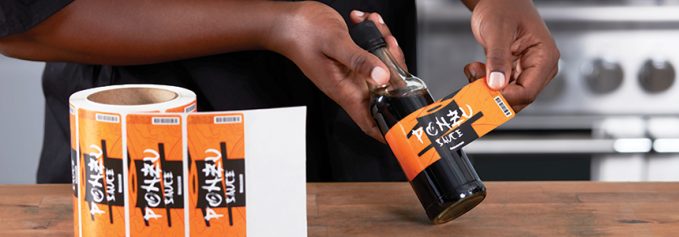
by Cassandra Balentine
Trade/wholesale printers are an excellent tool available for any print provider’s use. Key instances for obtaining a trade printer include eliminating the need to say no to jobs, offset commodity work in busy seasons, and feel out new application areas before making a technology investment.
Brian Meshkati, VP, SinaLite, points out that some orders may not be profitable to print in house, so outsourcing these orders reduces expenditures. “This also keeps the costs low for customers, which makes business more competitive.”
Others look to outsourcing when they don’t have the right-sized equipment or specialty materials. “Outsourcing typically doesn’t have any up-front costs like expensive machinery. Another reason is maintenance, inventory, and space—there’s ink, press materials, and house substrates to keep on hand,” offers Jennifer Hoyt, marketing communications manager, Stouse.
“Print businesses that specialize in a particular product or printing method often choose to outsource orders that they do not specialize in or have the equipment to produce. This way, they can become a one-stop shop for their clients and test out new products before investing in more machinery,” agrees Meshkati.
However, there is often hesitation as it is understandably difficult to loosen the reigns and give control to an outside party.
Managing Expectations
Quality and timing are the biggest concerns for going the trade route. Therefore, before selecting a trade partner, it is essential to find one that you are confident in using.
Like any strong partnership, Lisa Teague, co-owner, BCT Ohio/Michigan, admits that you should trust your trade press partner. “You have to trust that you’ll get a quality product, that they will stand by their word, and trust that when things do go sideways—which they will—that they will make it right. A good trade partner makes you look good.”
There are many factors to consider when forming relationships with a wholesale partner or partners. The obvious ones include competitive pricing, high-quality printing, and turnaround times that fit your customers’ needs.
Beyond those, Hoyt says a wholesale printer should provide top-notch customer service and the right equipment, coupled with expertise to avoid potential pitfalls and obstacles. “They should invest in systems that make it easy to place orders and track jobs, blind ship to save time and money, and offer marketing tools to help one sell.”
It is also smart to consider what makes a trade printer a good long-term partner. “For example, even if you do not need many products now, a good trade printer should offer a variety of products in case you need them in the future. These include products that you produce in house and those that you do not,” suggests Meshkati.
A trade/wholesale printer should only print for resellers and print professionals. “Beware of trade printers that make it easy for end users to work with them, as this could undercut your business. Trade printers should always have a review system in place to verify account applications to ensure that only resellers and print businesses are approved,” recommends Meshkati.
“Our customers put their reputation on the line when they outsource, and therefore we developed high standards for manufacturing superb-quality printed products that are recognized throughout the industry,” says Hoyt.
Because of this, Stouse considers itself an expert at handling the specialty graphics products that many printing companies don’t want to mess with or don’t have the equipment to produce.
Teague suggests finding a trade printer that will work closely with you. “It’s important that they have the online tools to create an efficient ordering process, but you also need someone that you can talk to. There will always be that rush order or unique request and you need to be able to pick up the phone and speak to a human being about it.”
It is a good idea to find a wholesale trade printer that offers a satisfaction guarantee. “This way, you have nothing to lose and they will either refund you or reprint the order if it is not to your satisfaction,” offers Meshkati.
For added assurance, he recommends sending in a few small test orders to see and feel the quality and to become more familiar with the ordering process. “For example, you could order a set of business cards for yourself.”
A Helping Hand
When you determine outsourcing is the right path for certain work and found a reliable trade partner, the next step is implementing an outsourcing strategy.
“Listen to your customer. What are they asking for that you don’t currently offer? That’s a good place to start,” suggests Teague.
“If you are using a trade printer to offer new products to your clients, start with the ones that you get the most demand for—e.g. your clients have asked about them recently,” agrees Meshkati.
One strategy is to take advantage of your customers’ questions and quote requests when they ask for something you cannot produce in house. Instead of saying ‘no’ consider asking a wholesale partner to quote it for you,” says Hoyt. “That puts you in a better position to say, ‘yes, we can do that job.’”
“If you are not sure which products are in demand, find out what your competitors are offering,” comments Meshkati.
In another scenario, if you are using a trade printer to increase profits for products that you are already selling, determine what to outsource based on what is the least profitable to print in house. “For example, if your in-house production can do longer runs at a lower cost, then outsource shorter runs to the trade printer, and vice versa. This helps you maximize your profits,” suggests Meshkati.
Hoyt adds that the printing industry is full of companies that collaborate to get the job done. “Many of us work with each other on a daily basis and understand deadlines—often the printing is the last thing that gets approved, making it a rush to the finish line. Communication is key to working with a wholesale partner.”
Pointing to Price
Figuring out how to best price products that are sent out is an essential consideration that should be well thought out before orders are shipped to a third party.
When it comes to pricing products, Meshkati says the markup for most products falls between 20 and 40 percent, although some items can be marked up as high as 400 percent.
Of course, the exact price points depend on several factors, including the type of product, the finishing, and the level of customization. He says items like ad-mail, wall calendars, and clings tend to have lower average markups, while banners, business cards, and car magnets have the highest average markups.
Stouse offers its reseller partners a suggested manufacturer’s retail price on its published catalog items—over 3,000 items. “While Stouse makes every effort to assist in this process, we can only give suggestions for retail pricing. High-value estimates are often very competitive. Most businesses in the printing industry gradually reduce the margin percentage as the value of the order increases in an effort to win the order. Ultimately, the print provider has control of the margins they’d like to achieve,” comments Hoyt.
Although Teague admits that she doesn’t typically see what customers charge for its products, for a single, one-time order, the traditional mark up is two times the cost. “However, for corporate volume programs I think the markup is significantly lower than that. I would suggest testing the waters or consulting with other resellers in your market.”
Pandemic Printing
What would an article in 2021 be without a note about the ongoing COVID-19 crisis? The wholesale printing industry was not immune to its effects.
Teague finds that during the COVID-19 pandemic, traditional printers are outsourcing even more. “In some cases it is due to lack of employees. In other scenarios a reduction in business was enough to convince them to shut down their production,” she admits.
During COVID-19 many print businesses had difficulty getting orders for traditional print products such as business cards and flyers. “Instead, their customers were asking for large format items like floor graphics, decals, and signage. Hence, we saw an influx of orders for these products,” says Meshkati.
Hoyt also noticed a shift in the type of products that companies were looking to outsource. “Much of our business revolves around events where people get together or places where consumers frequent—restaurants, bars, shops, etc. With those outlets subjected to government mandated shut-downs and lower customer traffic, we pivoted to provide our resellers with sales ideas for products that are essential for communicating information in several industries—healthcare, restaurants, and grocery stores. Products like signs, flags, social distancing floor decals, tamper-evident take-out labels, student desk dividers, and vaccine stickers were items that were vital. This effort gave our customers a reason to reach out to end users and continue to sell products that could help them operate during a pandemic. Some of the indirect fallout from the pandemic has been the ability to get parts when a machine goes down, labor and material shortages, and higher prices,” notes Hoyt.
Meshkati says SinaLite also helped its print partners adapt to new customer needs by offering health and safety products like face shields and sneeze guards.
It is important to consider how the pandemic has affected wholesale trade printers and set expectations accordingly. For example, due to industry wide supply chain disruptions and labor shortages, typical turnarounds may be extended.
Round Up
Many wholesale trade printers are available to choose from. Here we highlight a few.
4over is an online wholesale trade printer that understands that speed to delivery is essential. It serves 100-plus North American markets in Canada and the U.S. with local delivery and pickup. Key products include business cards, postcards, flyers, booklets, banners, and signs. New products include aluminum prints, painted edge cards, brown kraft cards, raised spot UV, raised foil, and displays.
A-Plus Printing offers everything from design to direct mail and same-day printing. The company strives for high quality, affordable prices, fast turnaround, and great customer service.
BCT Ohio/Michigan is a wholesale printer that specializes in corporate print collateral. About 70 percent of what it prints are business cards. It also offers letterhead, envelopes, brochures, postcards, forms, announcements, and some specialties such as rubber stamps, name badges, and door hangers. It has evolved over the years from specializing in thermography and selling primarily through retail printers and copy shops to now providing a variety of print methods, including specialty finishes. It sells primarily through brokers.
“We make business card and stationery print programs easy for the reseller and the end user. We are also very good at consistently matching corporate branding. We have taken over programs that had been a major headache for a dealer, to the point that they were close to losing an account over business cards, to having everyone extremely satisfied with the product and the process,” states Teague.
Located in Madison Heights, MI, DigiTrade specializes in multi-page documents ranging from eight to over 300 pages. It offers saddle stitched, perfect bound, plastic coil, and wire-o binding. Selling only to print trade partners, it aims to impress with low prices, outstanding print quality, quick turnaround times, as well as friendly and efficient customer service.
Digital Kopy Services is an independent, family owned and operated wholesale-only trade printing business. Products include but are not limited to custom label and sticker printing, digital printing, wide format printing, direct mail, offset printing, and bindery.
Ennis, Inc. has a nationwide footprint with 55 facilities across the U.S. engaging in the print and manufacture of business forms and commercial print for the wholesale trade. Whether it’s any type of form, financial product, presentation folder, envelope, tag, or label, it has the printing capabilities to support your business. The company offers 24/7 distributor support, marketing materials, and state-of-the-art ecommerce tools.
FireSprint.com is a wholesale to the trade sign and graphics printer offering screen and digital printing. All of its materials are sold by the square inch, cut to any size, shape, or quantity. Next day production and one- to three-day shipping are available on many of the most popular products. Consider FireSprint for yard signs, banners, foam board, aluminum, posters, political signs, corrugated plastic, PVC, styrene, magnetic, and vinyl.
Lewis Color, Inc. is a wholesale trade printer that produces integrated printing solutions for house accounts and also delivers a white label experience for customers. Clients work directly with in-house account managers, not a commissioned salesperson. Services include direct mail and data services, digital on demand printing, offset printing, large format printing, and kitting and fulfillment.
Founded in 1998 as Millennium Printing, MPI Print has grown to occupy two production plants with 95,000 square feet of space. Its owners attribute that consistent growth to the company’s underlying philosophy of exceptional customer focus while maintaining high quality, flexibility, and competitive pricing. Its new high-speed web press is another piece of the puzzle in MPI’s value added, customer focus strategy.
PrintingForResale is a division of Dagher & Son’s Inc. This division opened for the trade in 2007 as a partner printer. The company’s mission is to do everything possible to make the process of buying printing easy.
Signs365.com is a grand format, trade-only wholesale printer. It offers a variety of full-color, high-quality printed products all produced in 24 hours. $10 Overnight Anywhere shipping is available on all products. It recently introduced a new product, Hard Cards, which is a unique, full-color, vibrant, 4-mil aluminum rigid business card offering. Durable and lightweight, Hard Cards are offered in both single- or double-sided options and are UV coated to protect the finish.
SinaLite is a wholesale trade printer serving over 20,000 print professionals and resellers across Canada and the U.S. The company helps its print partners maximize their print profits and grow their businesses with low prices, fast turnarounds, and instant quotes from an easy-to-use website.
“Our 22 years of printing expertise and $25 million worth of investments in print technology set us apart from the competition. Our wholesale prices are on average 15 percent lower than other trade printers, and we finish printing in as fast as one day,” explains Meshkati.
He says with SinaLite, print partners can choose from over 1,000 product options, including business cards, flyers, large format signage, apparel, roll labels, and drinkware.
Stouse has helped thousands of print providers for more than 40 years with specialty printed items like decals, magnets, roll labels, signs, and plastics. Examples of these products include, but are not limited to, all kinds of stickers with different types of surface materials and adhesives, numbered parking permits, and short-run folding cartons.
“What differentiates us from our competitors is our people, from customer service to the operators on the production floor. Our associates value every one of our print provider relationships and believe that helping them grow and succeed is our biggest priority. We want to save them time and money and produce jobs they would otherwise have to turn down,” says Hoyt.
Zoo Printing offers a variety of services. Everything from design online to direct mail and a generous loyalty program are built to help its customers grow sales while saving money. Its branded website program is a tool to help clients compete online.
Wholesale Help
There are many benefits to outsourcing work to trade printers. However, the concerns of doing this are not unwarranted. It is important to research the reputations of any company you consider sending work to. Submit test jobs, ask peers, and search for reviews. Finding the right partner can help get through the toughest of times.
“Having a reliable trade partner will free up your time and resources to do what you do best. That may be products you produce or simply freeing up your time for more selling,” comments Teague.
“Wholesale trade printers can help complete time-consuming orders, which frees up time for print providers to focus on other orders. They can also give print providers the ability to offer more product choices to their clients, including products that they are not able to produce in house. This empowers them to become a one-stop shop that their clients can rely on for all their printing needs,” adds Meshkati.
“Finally, by choosing to work with a trusted outsourced trade print partner, you have the flexibility to use a broader range of processes and technologies to ‘wow’ your customers with the variety of ideas you can bring to the table. Whether it’s using different types of printing, aligning yourself with a partner with a robust specialty finishing department, or even partnering with someone who can boost or expand your product offerings—like with decals, roll labels, or printed plastic items, you will find you have to say ‘no’ to clients far less often than you would if you didn’t have that outsource relationship,” says Hoyt.
For more on this topic, check out our webinar at dpsmagazine.com/webinars.
Nov2021, DPS Magazine



